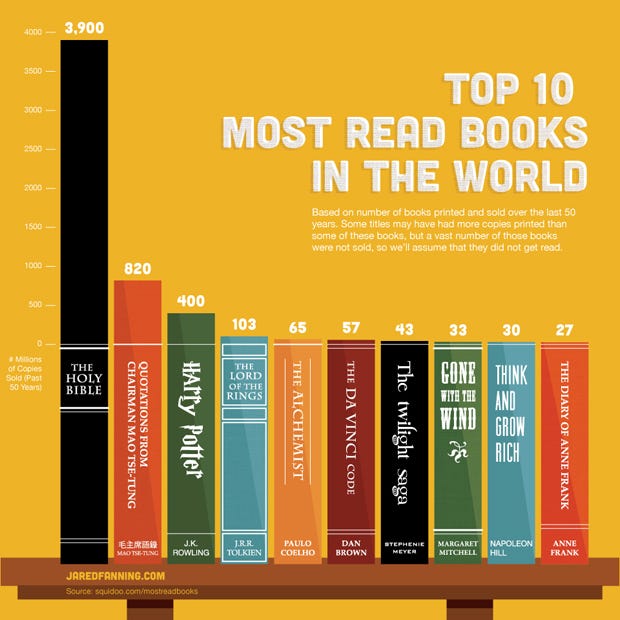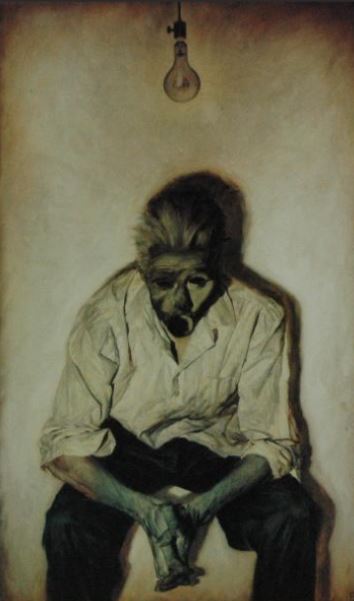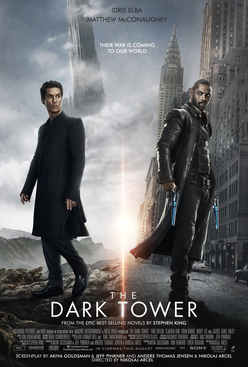Are Stephen King Characters Influenced By Mythology?
If you’ve ever delved into the twisted and captivating world of Stephen King’s novels, you might have wondered where he gets his inspiration for his complex and unforgettable characters. Well, get ready to explore a fascinating connection as we dive into the question: Are Stephen King characters influenced by mythology?
When it comes to crafting his characters, Stephen King is known for his ability to create individuals who are both relatable and deeply intriguing. But what if there’s more to these characters than meets the eye? Could it be possible that the master of horror draws inspiration from ancient myths and legends to shape his literary creations? In this article, we’ll explore the connections between Stephen King’s characters and the rich tapestry of mythology, uncovering the hidden depths and influences that make his stories all the more captivating. Get ready to embark on a thrilling journey where the worlds of literature and mythology collide.

Are Stephen King Characters Influenced by Mythology?
Stephen King is one of the most prolific and influential authors of our time. His novels and stories have captivated readers for decades, filled with memorable characters and chilling tales. But have you ever wondered where King gets his inspiration from? It turns out that mythology plays a significant role in shaping his characters and narratives. In this article, we will delve into the connection between Stephen King’s characters and mythology, exploring how these ancient tales have influenced his storytelling.
The Influence of Mythology on Stephen King’s Characters
Stephen King has often acknowledged his fascination with mythology and its impact on his writing. He incorporates elements of various mythological traditions, ranging from Greek and Norse mythology to ancient legends and folklore. By drawing on these timeless stories, King infuses his characters with depth, complexity, and archetypal qualities that resonate with readers.
One example of mythology’s influence can be seen in King’s novel “The Stand.” The story follows a group of survivors in a post-apocalyptic world, where they are forced to confront a malevolent force known as Randall Flagg. Flagg, a recurring character in King’s works, embodies the archetype of the trickster, a figure found in numerous mythologies around the world. He represents chaos, manipulation, and the darker aspects of human nature, making him a compelling and unforgettable antagonist.
The Archetypal Characters in Stephen King’s Works
Mythology also shapes the archetypal characters that populate Stephen King’s stories. These characters embody universal themes and traits that have been passed down through generations. For instance, the hero’s journey, a common motif in mythology, is frequently found in King’s work. The hero, often an ordinary individual thrust into extraordinary circumstances, must navigate challenges, face their inner demons, and ultimately triumph over evil.
In “The Shining,” King introduces us to Jack Torrance, a struggling writer who becomes the caretaker of the isolated Overlook Hotel. As the story unfolds, Jack’s descent into madness mirrors the tragic flaw of characters from Greek mythology, such as Oedipus or Macbeth. This connection to ancient tales adds a layer of depth and resonance to Jack’s character, making him both sympathetic and terrifying.
The Mythological Themes in Stephen King’s Narratives
Beyond individual characters, mythology also influences the overarching themes and narratives in Stephen King’s works. Themes of fate, destiny, and the battle between good and evil are prevalent throughout his stories, mirroring the timeless struggles depicted in mythology. Whether it’s the fight against supernatural forces in “IT” or the moral ambiguity explored in “The Dark Tower” series, King weaves in mythological motifs that resonate with readers on a deep level.
In addition, King often incorporates elements of folklore and urban legends, blurring the line between reality and the supernatural. These tales, rooted in oral traditions and passed down through generations, echo the mythologies of old, connecting us to our collective past and tapping into our primal fears and desires.
The Impact of Mythology on Stephen King’s Popularity
The incorporation of mythology in Stephen King’s work has undoubtedly contributed to his enduring popularity. By drawing on these ancient tales, he taps into a rich tapestry of human experience and emotion, creating stories that resonate with readers on a profound level. The archetypal characters, mythological themes, and timeless narratives make his works accessible and relatable to a wide audience.
Furthermore, mythology adds a layer of depth and complexity to King’s storytelling. It enriches the world-building, adds symbolism and allegory, and invites readers to explore profound questions about the human condition. The fusion of mythology with King’s distinct style of horror and suspense creates a unique reading experience that keeps fans coming back for more.
The Enduring Legacy of Stephen King’s Mythological Influences
As Stephen King continues to write and captivate readers, his use of mythology will undoubtedly remain a defining aspect of his storytelling. By weaving together ancient tales and contemporary horror, he creates a narrative tapestry that stands the test of time. The influence of mythology on his characters, themes, and narratives ensures that King’s works will continue to be celebrated and analyzed for years to come.
In conclusion, Stephen King’s characters are undeniably influenced by mythology. From the archetypal qualities of his heroes and villains to the mythological themes that permeate his stories, King draws on ancient tales to create compelling and memorable narratives. The fusion of mythology with his unique style of storytelling has solidified his status as one of the most celebrated authors of our time. So, the next time you dive into a Stephen King novel, remember that behind the horror and suspense lies a rich tapestry of mythological influences that make his stories all the more captivating.
Key Takeaways: Are Stephen King characters influenced by mythology?
- Stephen King often incorporates elements of mythology in his characters and stories.
- Mythological figures and themes can be found in characters like Pennywise from “It” and Randall Flagg from “The Stand.”
- These mythological influences add depth and symbolism to King’s characters.
- King’s characters often embody archetypal traits seen in mythology, such as the hero, the trickster, or the villain.
- Understanding the mythological influences in King’s work can enhance the reading experience and provide insight into his storytelling.
Frequently Asked Questions
Stephen King is a renowned author known for his captivating characters and gripping storytelling. Many readers have wondered if his characters are influenced by mythology. Let’s explore some common questions about the presence of mythology in Stephen King’s novels.
1. How does Stephen King incorporate mythology into his characters?
Stephen King often draws inspiration from various mythologies to create complex and multidimensional characters. While his characters may not directly mirror mythological figures, they often possess traits and experiences reminiscent of mythological archetypes. King weaves these elements into his storytelling to evoke a sense of familiarity and resonance with readers.
For example, in “The Dark Tower” series, King draws from Arthurian legends and Norse mythology to shape the character of Roland Deschain, the Gunslinger. Roland’s quest for the Dark Tower reflects the hero’s journey seen in many mythological narratives, while his encounters with supernatural beings and challenges mirror those found in ancient tales.
2. Which mythological influences can be found in Stephen King’s characters?
Stephen King’s characters often exhibit traits and characteristics that align with various mythological figures. The influence can be seen in both their personalities and their roles within the narrative. For instance, the character of Randall Flagg, who appears in several of King’s novels, possesses qualities reminiscent of trickster figures found in various mythologies.
In “The Stand,” Flagg embodies both the archetype of the Dark Man and the embodiment of evil, drawing parallels to figures like Loki from Norse mythology or the Devil from Christian mythology. King’s use of these mythological influences adds depth and complexity to his characters, making them more compelling to readers.
3. Are there any specific mythological references in Stephen King’s works?
Yes, Stephen King often includes explicit references to mythology in his works, further emphasizing the influence of these ancient tales on his storytelling. In “It,” the character of Pennywise the clown is believed to be an embodiment of the ancient cosmic entity known as It, which feeds on fear and takes the form of various monsters.
This concept draws from the Lovecraftian mythos, where ancient beings from other dimensions exert control over humanity. By incorporating these mythological references, King adds a layer of depth and intrigue to his stories, engaging readers on multiple levels.
4. How does the use of mythology enhance Stephen King’s storytelling?
The incorporation of mythology in Stephen King’s works enhances the depth and richness of his storytelling. By tapping into universal themes and archetypes found in mythology, King creates a sense of familiarity and resonance with readers. This connection allows readers to relate to the characters and their experiences on a deeper level.
Moreover, the use of mythology adds an element of timelessness to King’s stories. Mythological narratives have been passed down through generations, and their enduring appeal stems from their ability to reflect fundamental aspects of the human condition. By infusing his characters with mythological influences, King ensures that his stories transcend time and resonate with readers across generations.
5. Can the influence of mythology be seen in Stephen King’s newer works?
Absolutely! Stephen King continues to incorporate elements of mythology in his newer works. In his novel “American Gods,” he delves into the realm of modern mythology, exploring the clash between ancient gods and new deities created by contemporary society’s beliefs and obsessions.
This exploration of mythology in the context of modernity showcases King’s ability to adapt and evolve his storytelling while still drawing from the timeless themes and archetypes found in mythology. Whether it’s in his earlier or more recent works, the influence of mythology remains a significant aspect of Stephen King’s writing.
Stephen King Reveals His Top Five Stephen King Stories
Final Thought: Stephen King Characters and the Mythological Influence
When it comes to Stephen King’s characters, it’s clear that mythology plays a significant role in shaping their stories and personalities. While King may not directly draw from specific myths or legends, he taps into the timeless themes and archetypes that have been present in mythology throughout history. By incorporating these mythological elements into his writing, King adds depth and complexity to his characters, making them more relatable and captivating to readers.
Throughout his vast body of work, Stephen King explores universal themes such as good versus evil, redemption, and the power of destiny. These themes resonate with readers because they are deeply rooted in mythology. Just like the heroes and villains of ancient myths, King’s characters face extraordinary challenges and embark on transformative journeys. They grapple with their inner demons, confront their fears, and ultimately strive for personal growth and triumph.
By infusing his characters with mythological influences, King creates a sense of familiarity and connection. We see elements of the hero’s journey, where characters like Roland Deschain from “The Dark Tower” series or Danny Torrance from “The Shining” must face their own trials and tribulations. These characters embody the mythical archetypes of the hero, the mentor, and the trickster, among others. Through these archetypes, King brings his characters to life and allows readers to see themselves reflected in their struggles and triumphs.
In conclusion, Stephen King’s characters are undeniably influenced by mythology, even if not explicitly. By drawing on the timeless themes and archetypes present in mythology, King creates captivating stories that resonate with readers on a deep level. Whether it’s the battle between good and evil, the quest for redemption, or the journey of self-discovery, the mythological influence in King’s characters adds richness and complexity to their narratives. So, the next time you dive into a Stephen King novel, keep an eye out for the mythical threads that weave their way through the captivating tapestry of his storytelling.






